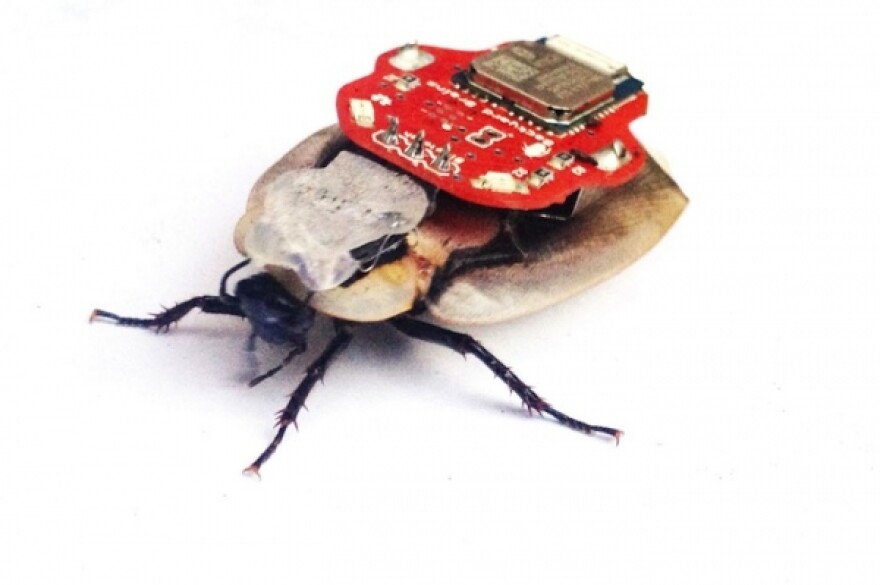All it takes is one new innovation or successful company to change the economic fortunes of an entire city or region.
More often though, it’s the cumulative effect of many new innovations and successful companies that create lasting economic change.
Regardless if it’s one or 1000, new tech companies have an arduous path to success. Yet because of their potentially huge payoffs, competition to host them and their talented workforce is fierce.
One hiccup in a new company’s funding could halt the development of a promising innovation, or force the company to relocate to another state with more resources, taking future jobs and tax revenue with it.
Tech entrepreneurs are all too familiar with the loveless land of shrugs and empty pockets that I like to call the “Valley of Death.”
The “Valley” is that point somewhere between the initial development of an innovative idea, and the proof that it has potential in the marketplace. It’s the moment when fledgling companies need capital to get from here to there. And that’s the rub.
I often also refer to this period as “Come back when…” If there is high technical risk, most investors will say “come back when …” When is when? It varies. When there are a certain number of customers. When the product is in clinical trials. When there is a working prototype.
Sound like a Catch 22? It can be, yet all it takes is the loss of one potentially groundbreaking company to another state in order to see how important the continuum of funding is to Michigan’s entrepreneurial ecosystem.
There is a potential solution available for Michigan tech entrepreneurs facing this crucial moment in their company’s life cycle. The federal SBIR/STTR programs provide over $2.6 billion of capital every year to small businesses developing high-risk, high-return, technology-based products.
The money is targeted specifically for research and product development, to reduce the technical risk and help avoid the dreaded “come back when…” conversation.
As we continue to work to diversify Michigan's economy, it doesn't make sense for our entrepreneurs to be missing out on such a rare commodity: investment dollars with virtually no strings attached.
Eleven federal agencies, ranging from the Department of Defense to the National Institutes of Health, have SBIR/STTR funds available. The program is competitive, but with over $1 million per project of non-dilutive (i.e. free) funding available, an SBIR/STTR grant can be the factor that allows Michigan entrepreneurs to cross the “Valley of Death” and come back standing upright and staying put.
Michigan is one state that provides robust support for entrepreneurs in their quest for SBIR/STTR funding. The Michigan SBIR/STTR Assistance Program helps Michigan companies that qualify with training and proposal development, and covers most of the costs through a state-funded grant. Since 2002, when the program began, participating companies have been awarded over $171 million in federal grants and contracts.
Take Ann Arbor-based Backyard Brains (BYB), which provides affordable, hands-on neuroscience experiment kits for students of all ages.
BYB used the Michigan SBIR/STTR Assistance Program for proposal development assistance. The result was successful grant awards totaling more than $1.6 million.
The funding has enabled BYB to continue its growth and expand its product line, now including such offerings as the “EMG SpikerBox” that records electrical activity produced by cells in human muscles; and the “RoboRoach,” which uses some wires and a live roach to gain insights into neurostimulation. All their products come with lesson plans and experiments to facilitate learning and teaching neuroscience. The BYB team now has customers in over 44 countries on all seven continents.
The BYB story is proof that Michigan companies can compete successfully in the SBIR arena, and attract national and international attention. Yet far too many entrepreneurs are either unaware of the programs, or unwilling to go through the rigorous process necessary to compete.
As we continue to work to diversify Michigan’s economy, it doesn’t make sense for our entrepreneurs to be missing out on such a rare commodity: investment dollars with virtually no strings attached. And given the stakes, it doesn’t make sense for the rest of us to let them.
Lisa Kurek is managing partner of BBC Entrepreneurial Training and Consulting, which administers the Michigan SBIR/STTR Assistance Program.
Join the conversation in the comments section below, on Twitter or Facebook, or let us know your Next Idea here.


